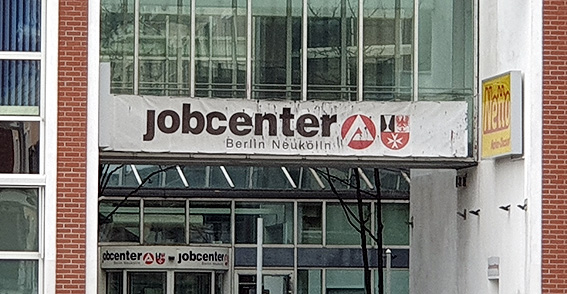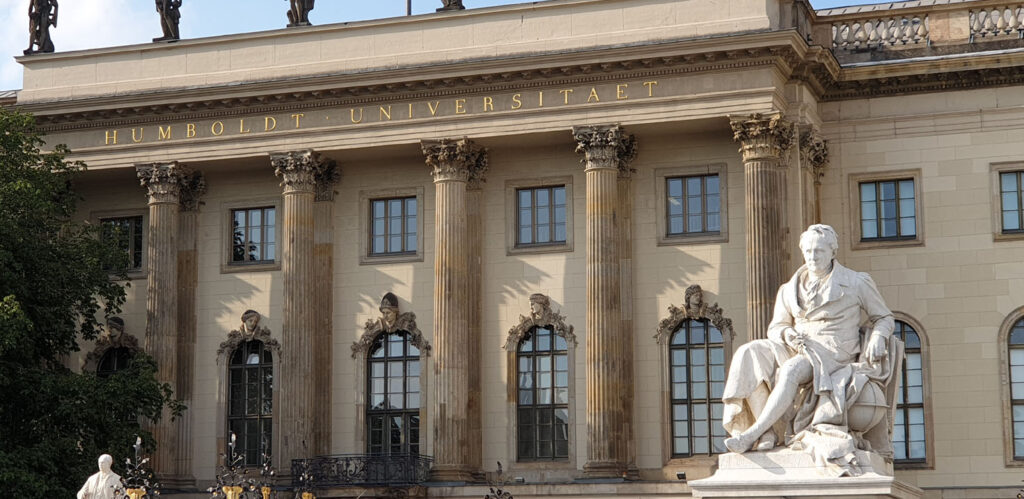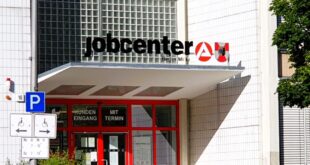In order to contain the consequences of the crisis caused by the coronavirus pandemic, new measures are adopted almost daily in Germany. But in addition to these short-term new regulations, there are also other laws that will take effect in Germany from May 2020. The African Courier summarises the most important changes here.
——
Kurzarbeit: Regulations for additional earnings by short-time workers relaxed
The regulations on additional earnings by short-time workers, people on partial unemployment (Kurzarbeit), have been relaxed, starting from 1 May to the end of 2020.
Until now, the rule was that anyone who took on a new part-time job while being on partial unemployment had to have the additional income fully deducted from the short-time work allowance (Kurzarbeitergeld).

In the wake of the Corona crisis, the Federal Government has now suspended this regulation. From now on, short-time workers can earn additional income without it affecting their short-time work allowance.
The Federal Government has also decided to increase short-time work benefits until the end of the year: from the fourth month, it increases to 70 per cent of the last net wage (77 per cent for households with children) and from the eighth month, to 80 percent (87 per cent with children).
——
Students can apply for emergency credit from 8 May
Federal Education Minister Anja Karliczek wants to help students with emergency loans through the corona crisis. Two thirds of the students work alongside their studies; for foreign students, it is about three quarters. Many of them have lost their jobs as a result of the current coronavirus pandemic. This presents many with financial constraints.
From 8 May, students can apply for an interest-free loan of up to €650 per month from the state development bank KfW.
Current KfW student loans and new applications should remain interest-free for German students until the end of March next year. Foreign students can receive the loan from July.

The application is to be processed without much bureaucracy via an online form, the Federal Ministry of Education promises. As usual with KfW student loans, you only have to start repaying after a waiting period of 18 to 23 months.
If you are in a particularly acute emergency and cannot get any other help from your parents, for example, you can apply for a subsidy from your local student service (Studentenwerk) that does not have to be repaid.
The bridging loan can be applied for at the KfW in the form of the interest-free loan from 8 May 2020. Foreign students can apply from 1 June 2020.
READ MORE: www.kfw.de/studienkredit-coronahilfe
——
Gradual school openings – senior grades take precedence
From the beginning of May some pupils will be able to go to school again. Resumption of pupils should start successively, so that lessons do not begin immediately for all grades.
First of all, the final classes, “qualification-relevant classes” and the fourth classes of primary schools should go back to school on 4 May.
——
Hairdressing and barbing salons can open again
After a forced break of several weeks due to the corona crisis, hair salons may reopen from 4 May – however, strict safety precautions must be observed to prevent the spread of COVID-19. For example, both the hairdresser/barber and the customer must wear a face mask.

The new protection standards may have an impact on prices. Customers will probably have to pay more when visiting the hairdresser or barber henceforth. The reason for this is that hair salons have to spend more money on protective gears such as disposable gloves, masks and disinfectants. According to the trade association of German hairdressers and barbers, all of this leads to an increase in their operating costs which will lead to the increase in the prices of their services. However, the increase should be moderate.
READ MORE: These rules apply henceforth when you visit your hairdresser or barber
——
Berlin gets an additional holiday
There is an additional public holiday in Berlin in May. On Friday, 8 May the liberation from National Socialism and the end of the Second World War (“Tag der Befreiung” (Liberation Day)) will be commemorated. This is a one-off holiday to mark the 75th anniversary of the historic event that is limited to the state of Berlin.
In other European countries such as France, the Czech Republic and Slovakia, however, the “Liberation Day” is a national holiday.
In addition, there are two national holidays in Germany in May:
Labour Day on 1 May (Friday) and Ascension Day on 21 May (Thursday).
——
Increase in minimum wage in nursing professions, removal of regional discrepancy
From 1 May, mandatory minimum wages will be introduced in the elderly and outpatient nursing care sector for the first time. For nursing assistants, the minimum wages will rise in four steps to a uniform 12.55 euros per hour in the east and west of the Federal Republic by 1 April 2022. As from 1 September 2021, according to a decision by the Federal Government, there will no longer be regional differences in the minimum wages in the care sector.
——

DHL has to cut prices again
Sending parcels is cheaper again. After DHL parcel service increased its prices in January on average by 3 per cent, the regulatory agency intervened because the new prices were too high and ordered the reversal of the increase.
From 1 May, the outlet and online prices for private customers will revert to what they were until 31 December 2019.
Sending a medium-sized parcel weighing up to two kilos within Germany now costs 4.50 euros instead of 4.79 euros. Shipping a 10-kilo package drops by one euro to 9.49 euros. However, there will be no subsequent reimbursement for customers who paid more between January and May.
——
Menthol cigarettes banned due to new EU directive
From 21 May, menthol cigarettes can no longer be sold in Germany.
The background to the ban is the new EU tobacco product directive, which provides for stricter regulations for tobacco products. Accordingly, aromas must not mask the taste of tobacco. Hence, menthol cigarettes have to be removed from the range of products of cigarette makers.
——

These regulations apply since the end of April
- Face Mask requirement: After Schleswig-Holstein, the last federal state to introduce the face mask requirement on 29 April, the obligation for mouth and nose covering on public transport and while shopping now applies throughout Germany. An infringement is generally considered an administrative offence and can be fined in some federal states.
- New road traffic regulations: Since 28 April, significantly stricter road traffic regulations have been in effect. For example, an offender’s driver’s license will be confiscated for one month if they exceed a speed limit by 21 kilometres per hour in the city.
- Church services and prayer events should soon be possible nationwide again under certain conditions. The federal and state governments agreed on this on Thursday, 30 April. Playgrounds, museums, exhibitions, zoos and botanical gardens should also be able to reopen all over Germany under certain conditions. The federal states are responsible for implementation.
- All other lockdown measures remain in place and will be reviewed by the chancellor in consultation with the premiers of the federal states on 6 May
Femi Awoniyi/© TheAfrican Courier
 THE AFRICAN COURIER. Reporting Africa and its Diaspora! The African Courier is an international magazine published in Germany to report on Africa and the Diaspora African experience. The first issue of the bimonthly magazine appeared on the newsstands on 15 February 1998. The African Courier is a communication forum for European-African political, economic and cultural exchanges, and a voice for Africa in Europe.
THE AFRICAN COURIER. Reporting Africa and its Diaspora! The African Courier is an international magazine published in Germany to report on Africa and the Diaspora African experience. The first issue of the bimonthly magazine appeared on the newsstands on 15 February 1998. The African Courier is a communication forum for European-African political, economic and cultural exchanges, and a voice for Africa in Europe.
































